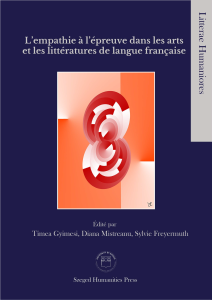Empathie narrative et les oubliés de la société: Illégitimes (2021) de Nesrine Slaoui, Ajar-Paris (2022) de Fanta Dramé et Streulicht (2020) de Deniz Ohde
Tartalom
The contribution analyzes three recent novels by young postmigrant women authors – Illégitimes by Nesrine Slaoui, Ajar–Paris by Fanta Dramé and Streulicht [Diffused Light] by Deniz Ohde – which illustrate how the transmission of low economic, social and cultural capital makes the children of parents with a migrant background pre-programmed victims of social disadvantage. Their social and ethnic otherness fills the narrator-protagonists with a certain shame. But unlike Ernaux or Louis, this does not lead to a fundamental apathy towards their own origins. On the contrary, the tense and ambiguous, but generally problematic, relations between the teenage girls and their parents reveal a deep empathy that is articulated by various narrative strategies that allow a certain understanding and thus influence the reader’s judgment in such a way that the representatives of disadvantaged social classes benefit from a rather empathetic understanding.
Keywords: Nesrine Slaoui, Fanta Dramé, Deniz Ohde, autosociobiography, empathy, internal focalization, shame, postmigration


